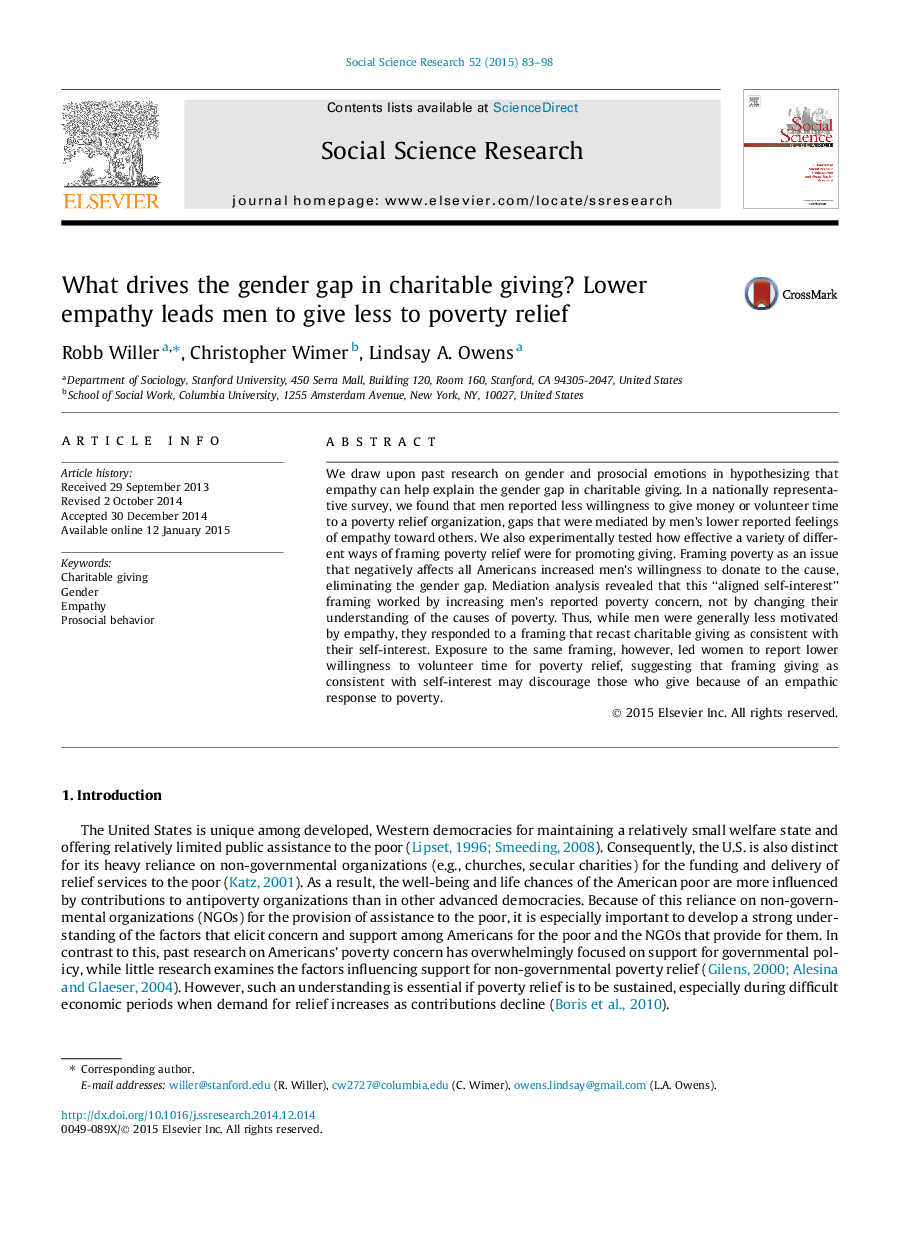| Article ID | Journal | Published Year | Pages | File Type |
|---|---|---|---|---|
| 955688 | Social Science Research | 2015 | 16 Pages |
•American men report less willingness to contribute to poverty relief.•Lower levels of empathic concern drove men’s lower giving.•Framing poverty as an issue that affects all Americans increased men’s giving.
We draw upon past research on gender and prosocial emotions in hypothesizing that empathy can help explain the gender gap in charitable giving. In a nationally representative survey, we found that men reported less willingness to give money or volunteer time to a poverty relief organization, gaps that were mediated by men’s lower reported feelings of empathy toward others. We also experimentally tested how effective a variety of different ways of framing poverty relief were for promoting giving. Framing poverty as an issue that negatively affects all Americans increased men’s willingness to donate to the cause, eliminating the gender gap. Mediation analysis revealed that this “aligned self-interest” framing worked by increasing men’s reported poverty concern, not by changing their understanding of the causes of poverty. Thus, while men were generally less motivated by empathy, they responded to a framing that recast charitable giving as consistent with their self-interest. Exposure to the same framing, however, led women to report lower willingness to volunteer time for poverty relief, suggesting that framing giving as consistent with self-interest may discourage those who give because of an empathic response to poverty.
